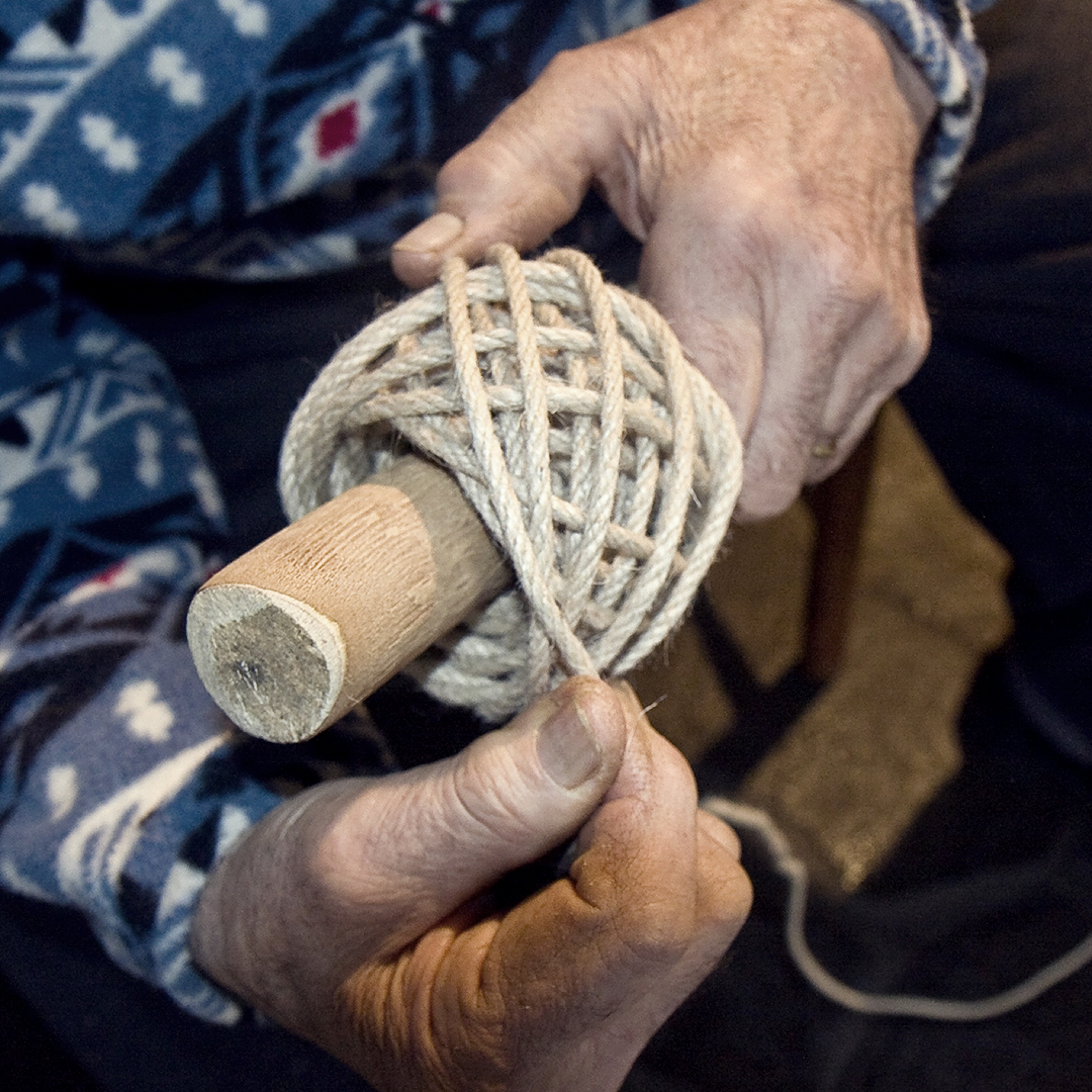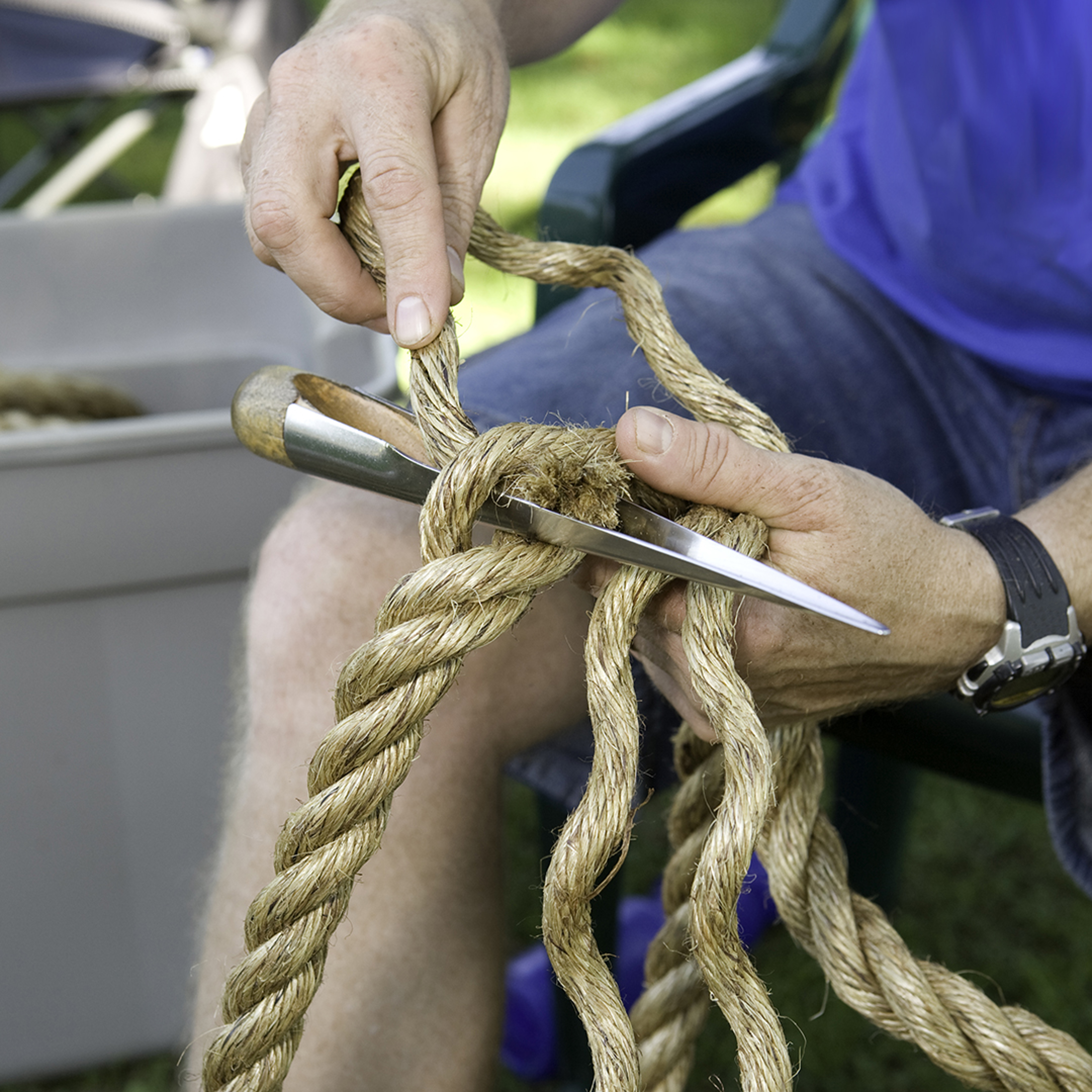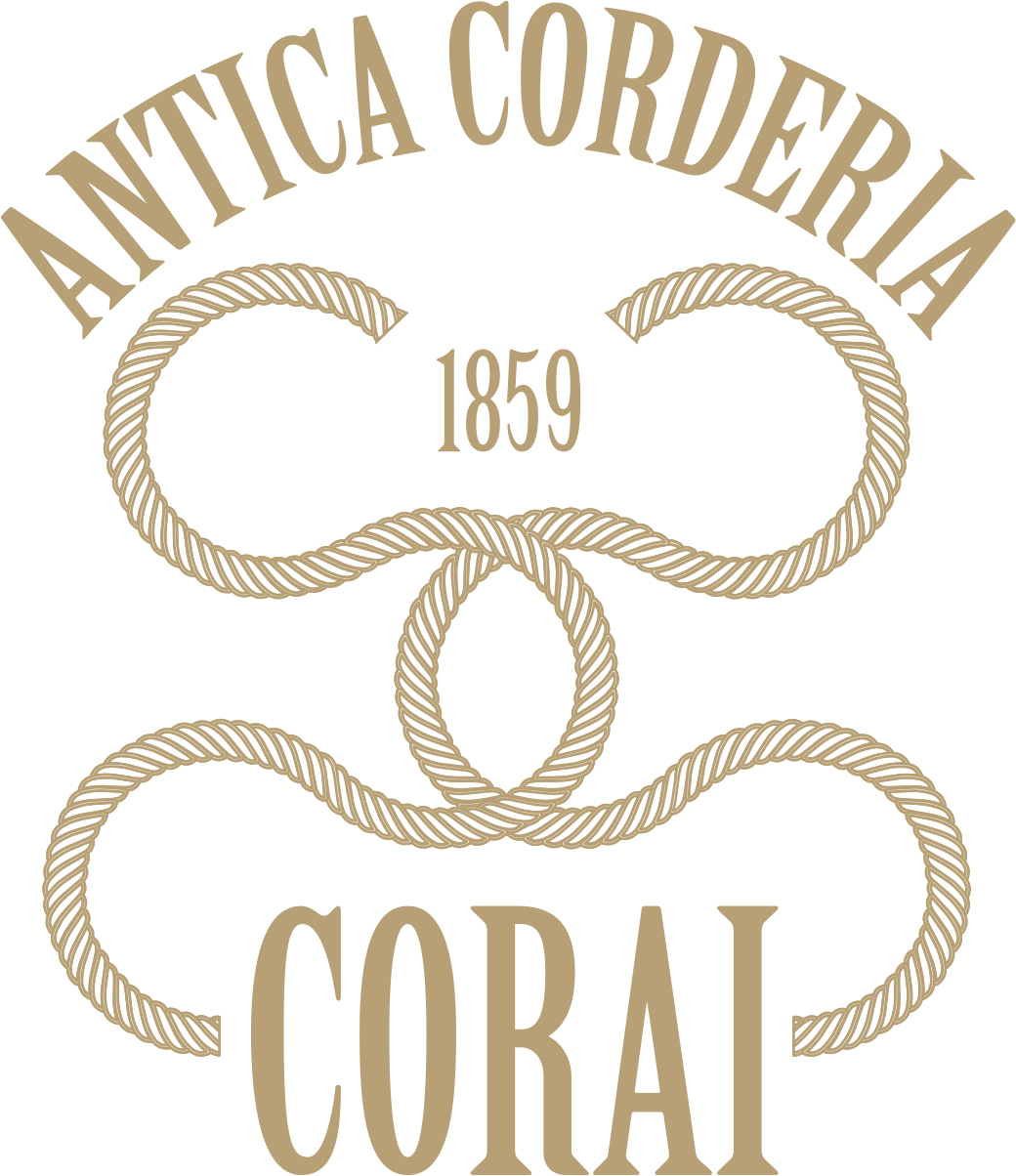Italian ropery since five generations
Since 1859, Antica Corderia Corai has been handing down the art of Italian rope-making, interweaving tradition and innovation. Our exclusive specialisation has enabled us to become a reference point for those seeking quality ropes, made with artisan passion for their qualities of resistance and sustainability.
Antica Corderia Corai
The history of the Antica Corderia Corai began in 1859, in Pordenone, when Felice Fortunato Corai, having learnt the art of cordage in the Hapsburg Navy, built the first track for the production of hemp ropes.
Since then, five generations of the Corai family have preserved and perfected this art.
From the first workshop with a hand-powered wooden wheel, to the introduction of water power in the 1930s, to the modern production techniques of today, we have always been able to evolve while keeping our identity intact.
Each generation has added a knot of experience to this long family rope: Giovanni Battista with handlooms, Davide with mechanical innovations, Daniele with commercial expansion, up to the current management that has introduced sustainable materials and customised production.
Today, we continue to be one of the few historical Italian corderie entirely dedicated to this thousand-year-old art.

A five generations long lasting Rope
Felice Fortunato Corai founds the ropery in Pordenone after learning the art of ropemaking in the Habsburg Navy.
Expansion of business with the purchase of the historic Capuchin convent.
Davide Corai innovates production methods by introducing mechanised water power.
Davide Corai receives the Knight of Labor honor for his commitment and innovation.
Davide Corai becomes Director of the Destra Tagliamento Artisans Association, after having managed its administration for ten years.
The Destra Tagliamento Artisans Association awards the Gold Medal to Knight of Labor Davide Corai in recognition of his 20-year commitment: from his appointment as councilor in 1946 to the direction of the Association held since 1956.
Daniele Corai moves the company from Pordenone to Cordenons.
The Pordenone Chamber of Commerce awards Daniele Corai the Loyalty to Work prize and the Ancient Artisan Workshop diploma.
The company continues to pass down the family tradition, combining artisanal techniques and sustainable innovation.
Services of Antica Corderia Corai
We don't just sell ropes: we offer expert advice to help you find the perfect solution for your needs.
Customised packaging, professional splicing and dedicated labelling are just some of the services we provide.
Thanks to our multi-generational experience, we can offer customised advice, because we know exactly what makes each rope suitable for its specific use, be it nautical, construction, agricultural or decorative.

A wide range of ropes suitable from the construction site to the theatre
Our ropes are used in numerous sectors, from ropes for construction to ropes for nautical, from ropes for agriculture to ropes for sport and leisure.
For each environment and need, we offer specific products that meet the technical and regulatory requirements of the sector.
Whether you are a professional looking for the perfect certified rope or a retailer looking for quality products, you will find the ideal solution among our proposals.
The perfect rope for every realisation
Discover our customised projects.
Choose the right rope for you
From traditional jute to the most innovative synthetic fibres, our catalogue includes hundreds of products to meet every need. Browse through the different categories to discover the rope that's right for you, or contact us for a tailor-made consultation.












